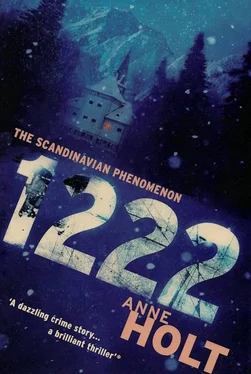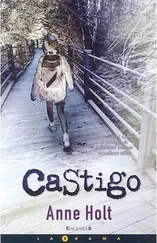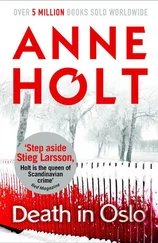Anne Holt - 1222
Здесь есть возможность читать онлайн «Anne Holt - 1222» весь текст электронной книги совершенно бесплатно (целиком полную версию без сокращений). В некоторых случаях можно слушать аудио, скачать через торрент в формате fb2 и присутствует краткое содержание. Жанр: Детектив, на английском языке. Описание произведения, (предисловие) а так же отзывы посетителей доступны на портале библиотеки ЛибКат.
- Название:1222
- Автор:
- Жанр:
- Год:неизвестен
- ISBN:нет данных
- Рейтинг книги:3 / 5. Голосов: 1
-
Избранное:Добавить в избранное
- Отзывы:
-
Ваша оценка:
1222: краткое содержание, описание и аннотация
Предлагаем к чтению аннотацию, описание, краткое содержание или предисловие (зависит от того, что написал сам автор книги «1222»). Если вы не нашли необходимую информацию о книге — напишите в комментариях, мы постараемся отыскать её.
As the snow fell – and kept falling – it seemed like fate [well, at least it would have done if I believed in fate!] that I should be reading a book in which the cast of characters find themselves trapped in a remote and mountainous Norwegian hotel after a heavy storm of, you guessed it, snow. It should be pointed out that this snowstorm is considered extreme even by Norwegian standards, and far outstrips the few inches of snow that is currently sitting outside my window [I’d imagine that most Scandinavians find Britain’s inability to cope with snow highly amusing].
When the train they are travelling on crashes, the 269 passengers are forced to take refuge in a nearby hotel, Finse 1222 [the numbers are a reference to its elevation above sea level]. But upon waking the next morning, the group discovers that one of their number – a priest – has been murdered during the night and left in a snowdrift outside the hotel. Soon the feeling of togetherness and community that had bonded the passengers immediately after the crash begins to falter and Holt expertly captures the way in which mob/crowd dynamics work and how fear and anger can quickly turn people against one another.
With the deaths mounting and the storm keeping them effectively imprisoned, it falls to wheelchair-bound ex-police officer Hanne Wilhelmsen to try to find the killer in their midst – a task that she undertakes reluctantly. Spiky, sarcastic and often rude, Hanne is at first a difficult character to like – something that I actually found refreshing in a literary protagonist. And I really enjoyed that Hanne is forced to use her brain and ingenuity to try to make progress – there is no forensics or recourse to criminal databases to slim down the [rather large!] suspect pool. It feels very much like Holt is paying homage to the sleuths from the ‘Golden Age’ of detective fiction.
Indeed, the snowed-in hotel scenario is itself an intriguingly original take on the classic ‘locked room’ scenario, as well as bringing to mind the snowbound Overlook Hotel from Stephen King’s The Shining. And Holt slowly and cleverly uses the setting and elements to build up the feeling of claustrophobia and tension that threads its way through the novel.
Holt [who used to be the Norwegian minister for justice] is the foremost female crime author in Norway, and her experience – 1222 is the eighth in the Hanne Wilhelmsen series – is evident in this novel. And, whilst it’s a shame that the previous Hanne novels haven’t been translated into English yet, 1222 is such a good book that it works effortlessly as a stand-alone. I’m definitely looking forward to reading more of Hanne, although I hope that they don’t bring any more snow with them – my room’s too chilly!
***
1222 metres above sea level, train 601 from Oslo to Bergen careens of iced rails as the worst snowstorm in Norwegian history gathers force around it. Marooned in the high mountains with night falling and the temperature plummeting, its 269 passengers are forced to abandon their snowbound train and decamp to a centuries-old mountain hotel. They ought to be safe from the storm here, but as dawn breaks one of them will be found dead, murdered. With the storm showing no sign of abating, retired police inspector Hanne Wilhelmsen is asked to investigate. But Hanne has no wish to get involved. She has learned the hard way that truth comes at a price and sometimes that price just isn't worth paying. Her pursuit of truth and justice has cost her the love of her life, her career in the Oslo Police Department and her mobility: she is paralysed from the waist down by a bullet lodged in her spine. Trapped in a wheelchair, trapped by the killer within, trapped by the deadly storm outside, Hanne's growing unease is shared by everyone in the hotel. Should she investigate, or should she just wait for help to arrive? And all the time rumours swirl about a secret cargo carried by train 601. Why was the last carriage sealed? Why is the top floor of the hotel locked down? Who or what is being concealed? And, of course, what if the killer strikes again?
When the train they are travelling on crashes, the 269 passengers are forced to take refuge in a nearby hotel, Finse 1222 [the numbers are a reference to its elevation above sea level]. But upon waking the next morning, the group discovers that one of their number – a priest – has been murdered during the night and left in a snowdrift outside the hotel. Soon the feeling of togetherness and community that had bonded the passengers immediately after the crash begins to falter and Holt expertly captures the way in which mob/crowd dynamics work and how fear and anger can quickly turn people against one another.
With the deaths mounting and the storm keeping them effectively imprisoned, it falls to wheelchair-bound ex-police officer Hanne Wilhelmsen to try to find the killer in their midst – a task that she undertakes reluctantly. Spiky, sarcastic and often rude, Hanne is at first a difficult character to like – something that I actually found refreshing in a literary protagonist. And I really enjoyed that Hanne is forced to use her brain and ingenuity to try to make progress – there is no forensics or recourse to criminal databases to slim down the [rather large!] suspect pool. It feels very much like Holt is paying homage to the sleuths from the ‘Golden Age’ of detective fiction.
Indeed, the snowed-in hotel scenario is itself an intriguingly original take on the classic ‘locked room’ scenario, as well as bringing to mind the snowbound Overlook Hotel from Stephen King’s The Shining. And Holt slowly and cleverly uses the setting and elements to build up the feeling of claustrophobia and tension that threads its way through the novel.
Holt [who used to be the Norwegian minister for justice] is the foremost female crime author in Norway, and her experience – 1222 is the eighth in the Hanne Wilhelmsen series – is evident in this novel. And, whilst it’s a shame that the previous Hanne novels haven’t been translated into English yet, 1222 is such a good book that it works effortlessly as a stand-alone. I’m definitely looking forward to reading more of Hanne, although I hope that they don’t bring any more snow with them – my room’s too chilly!
***
1222 metres above sea level, train 601 from Oslo to Bergen careens of iced rails as the worst snowstorm in Norwegian history gathers force around it. Marooned in the high mountains with night falling and the temperature plummeting, its 269 passengers are forced to abandon their snowbound train and decamp to a centuries-old mountain hotel. They ought to be safe from the storm here, but as dawn breaks one of them will be found dead, murdered. With the storm showing no sign of abating, retired police inspector Hanne Wilhelmsen is asked to investigate. But Hanne has no wish to get involved. She has learned the hard way that truth comes at a price and sometimes that price just isn't worth paying. Her pursuit of truth and justice has cost her the love of her life, her career in the Oslo Police Department and her mobility: she is paralysed from the waist down by a bullet lodged in her spine. Trapped in a wheelchair, trapped by the killer within, trapped by the deadly storm outside, Hanne's growing unease is shared by everyone in the hotel. Should she investigate, or should she just wait for help to arrive? And all the time rumours swirl about a secret cargo carried by train 601. Why was the last carriage sealed? Why is the top floor of the hotel locked down? Who or what is being concealed? And, of course, what if the killer strikes again?












